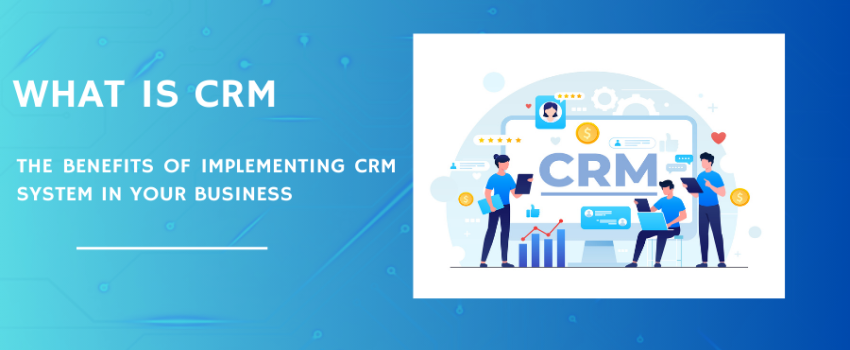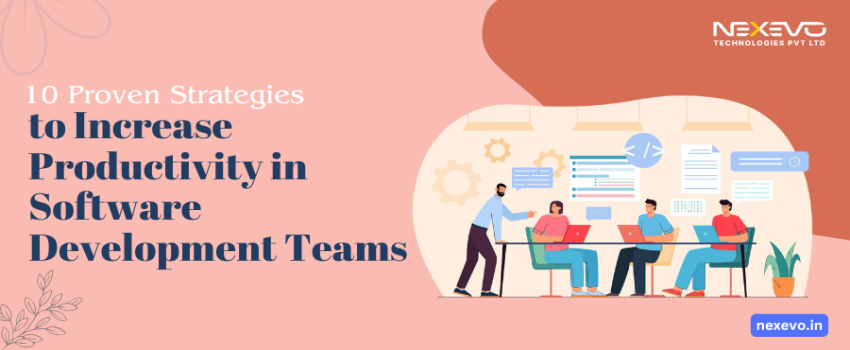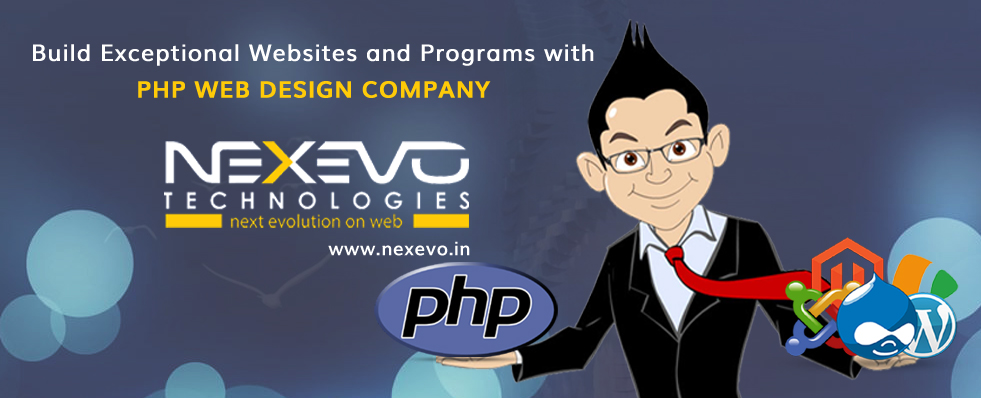What is CRM and the benefits of implementing a CRM system in your business?
Are you looking to take your business to the next level with a CRM system? Then this blog is for you. In this blog, let's learn what is CRM, how CRM system works, and how CRM software can help your businesses maintain your customer relationships, manage and automate tasks, and go with processes.

What is CRM(Customer Relationship Management)?
CRM stands for Customer Relationship Management. It's software that enables businesses to turn visitors into customers and retain existing customers.
The main goal of the CRM system is to improve the relationship between the company and its customers which in turn increases loyalty and close rates and drives profits
How CRM System Works?
Have you ever thought about how CRM system works?
Customer Relationship Management (CRM) has grown to be a vital tool for businesses of all kinds. For long-term growth and success, whether you're a small business or a large international organization, efficiently handling your relationships with clients and potential leads is essential.
A CRM (Customer Relationship Management) system works by collecting and organizing customer data and interactions including various aspects of customer management. Here's how it typically operates:
Let's discuss with an example in an understandable way to know how CRM systems work
Assume, a software company called IT Tech Solution. They have implemented a CRM system to manage their client's
information.
When a customer, let's say “ABC Corp” reaches out for IT consultation service, the CRM system works by logging in the CRM
system and the sales team schedules a consultation meeting and records the information with the CRM system.
During the consultation meeting, ABC Corp expressed that they are interested in IT tech solution’s IT consultation
service for a new project. The sales team will update the ABC Corps profile in the CRM and also note their project
requirement and needs.
As the project progresses, the IT Tech Solution uses the CRM system works to track all interactions with ABC Corp including
emails, phone calls, and project milestones. Any issues or concerns raised by ABC Corp will be noted within the
CRM.
The Marketing team will utilize the CRM data for the customized targeted campaigns for ABC Corp, based on their
industry and previous interactions. This personalized approach strengthens the relationship between IT Tech
Solutions and ABC Corp.
When it's time for ABC Corp. to renew its service contract, the CRM system works by sending automated reminders to the sales
team and the sales team will get in touch with ABC Corp to negotiate terms, and successfully renew the contract.
Throughout the entire customer lifecycle, IT Tech Solutions, makes use of the CRM system works to streamline processes, improve communication, and deliver exceptional service to ABC Corp. As a result, ABC Corp. remains satisfied with its partnership and continues to rely on IT Tech Solutions for its IT needs.
What Are The Benefits And Drawbacks Associated With CRM Systems?
Technology for Customer Relationship Management(CRM), has completely changed how companies communicate with their clients. Organizations may increase client satisfaction, grow, and improve techniques by utilizing robust software solutions. Like every technology, CRM systems have advantages and disadvantages of their own. To assist organizations in making well-informed decisions regarding the use of CRM systems, we will examine the benefits and drawbacks of this technology in this blog article.
Let's discuss what are the benefits of CRM first;
What are the Benefits of CRM?
Let's learn the benefits of implementing a CRM in your business
1. Maintain Customer Relationships:
A CRM system helps businesses to gather and maintain customer data, including contact information, preferences, and interactions. One of the key benefits of CRM is that you can send personalized emails to customers recommending products or services based on their previous interests and feedback.
For example, if a customer recently bought a smartphone, you can follow up with an email suggesting to purchase of
accessories like cases or screen protectors. This personalized approach that you understand the customer’s needs
and preferences strengthens the relationship between you and the customers. Thus, the benefit of CRM lies in its ability to enhance customer engagement and satisfaction through personalized communication and recommendations.
2. Know your Customer
Another challenging benefit of CRM is you can get to know your customer and its ability to create a 360-degree view to understand your customer
With a CRM system, your teams can easily access your customers,
- Name
- Email address
- Phone number
- Date of birthday
Having this information will make it easier to communicate with the customer. Moreover, CRM gives the facilities to
store all the activities, projects and sales, live chat messages, email correspondence, invoices, orders, contracts
or customer service inquiries, etc. CRM enables a deeper understanding of who your contacts are and what they
want.
3. Automate Data Entry with CRM
With CRM, your team won’t need to spend time manually logging emails, calls, meetings, and interactions. Instead, all the user's information will be automatically gathered and organized within the system. The important benefit of CRM is that CRM system representatives update the status of all activities they are handling. The CRM system will take care of the rest, including tasks like weighting, summation, and visualization, ensuring efficiency for everyone involved. The CRM benefit of automation significantly boosts operational efficiency and effectiveness.
4. CRM helps follow up with customers
CRM system helps in lead tracking, opportunity management, and sales forecasting. By automating routine tasks, such as follow-up emails or scheduling appointments, sales teams can focus more on closing deals.
5. Organize customer data
CRM system allows us to easily track every contact and the buys journey stage. The sales team will be able to see if a contact visited your company website or not, or taken any action like downloading content from the site, or has already spoken with other sales members. The sales team can also note the call or email interaction that happened with the customer. The best thing is all the information is always searchable within the CRM.
Drawback with CRM
Even though CRM benefits with great benefits, there are some challenges that businesses might face while implementing CRM
1. Learning Difficulty:
If CRM comes with advanced features, employees might take some time to learn how it works and understand how to work on it effectively. But no worries with proper training there is the solution to these changelles.
2. Complex Customization
Customizing a CRM system to fit your business needs can be complicated and time-consuming. To get the customization done, it is important to work closely with the developers to align the CRM system to fit your business requirement
3. Integrating with other tools
Its tricky to integrate the CRM system with other tools like email platforms, accounting software, etc. But once it is integrated it enhances overall operational efficiency.
CRM helps SaaS businesses in tracking recurring subscriptions, managing customer churn, and automating workflows that lead to upsells or cross-sells, driving higher customer retention and increasing lifetime value.
Still Confused about how implementing a CRM software system into your business benefits you? Contact us to get our professional guidance
We will guide you through the process and let you know the full potential of the CRM management software system for your organization.
Lets sum-up
Implementing CRM into business will present multiple benefits for businesses. By utilizing the CRM system technology, organizations can effectively gather and maintain customer data for better communication and automate the task routine which in turn helps in improving productivity and increasing sales opportunities.










